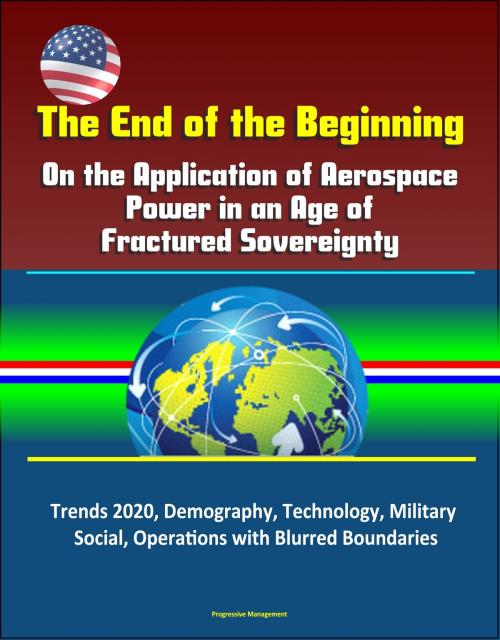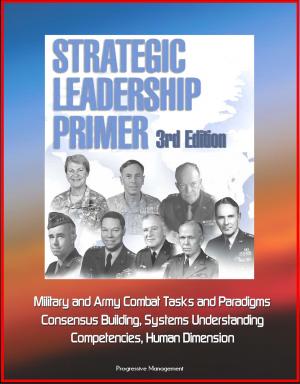The End of the Beginning: On the Application of Aerospace Power in an Age of Fractured Sovereignty, Trends 2020, Demography, Technology, Military, Social, Operations with Blurred Boundaries
Nonfiction, History, Military, Aviation| Author: | Progressive Management | ISBN: | 9781310358265 |
| Publisher: | Progressive Management | Publication: | June 20, 2016 |
| Imprint: | Smashwords Edition | Language: | English |
| Author: | Progressive Management |
| ISBN: | 9781310358265 |
| Publisher: | Progressive Management |
| Publication: | June 20, 2016 |
| Imprint: | Smashwords Edition |
| Language: | English |
This excellent report has been professionally converted for accurate flowing-text e-book format reproduction. This paper considers the future use of aerospace power in the changing international system. First, the nature and scope of the changing international system are analyzed via an examination of significant trends in technology, demography, military, and social affairs to build an analytical picture of the coming strategic environment and the probable challenges facing aerospace forces. This analysis describes the stresses and sources of tension that are likely to be present in the international system over the next twenty years. Demographic change makes it difficult for weak states to control their borders against refugees and migrants. Technological change requires states loosen control of their finances and communications if they wish to become competitive in the global marketplace. The decrease in major power war calls into question the relevance of traditional warfare to strong states and the historic rise in low-intensity conflict and civil wars casts doubt on the ability of weak states to defend themselves from internal enemies. Increasingly less able to control their borders, finances, and the tools of organized violence, states are forced to cope with changed circumstances. The research indicates that as aerospace forces are tasked to confront these challenges, they are likely to encounter mass population movements, uncertain and disputed boundaries, and will have to plan operations with an eye toward maintaining international legitimacy at all costs.
This excellent report has been professionally converted for accurate flowing-text e-book format reproduction. This paper considers the future use of aerospace power in the changing international system. First, the nature and scope of the changing international system are analyzed via an examination of significant trends in technology, demography, military, and social affairs to build an analytical picture of the coming strategic environment and the probable challenges facing aerospace forces. This analysis describes the stresses and sources of tension that are likely to be present in the international system over the next twenty years. Demographic change makes it difficult for weak states to control their borders against refugees and migrants. Technological change requires states loosen control of their finances and communications if they wish to become competitive in the global marketplace. The decrease in major power war calls into question the relevance of traditional warfare to strong states and the historic rise in low-intensity conflict and civil wars casts doubt on the ability of weak states to defend themselves from internal enemies. Increasingly less able to control their borders, finances, and the tools of organized violence, states are forced to cope with changed circumstances. The research indicates that as aerospace forces are tasked to confront these challenges, they are likely to encounter mass population movements, uncertain and disputed boundaries, and will have to plan operations with an eye toward maintaining international legitimacy at all costs.















